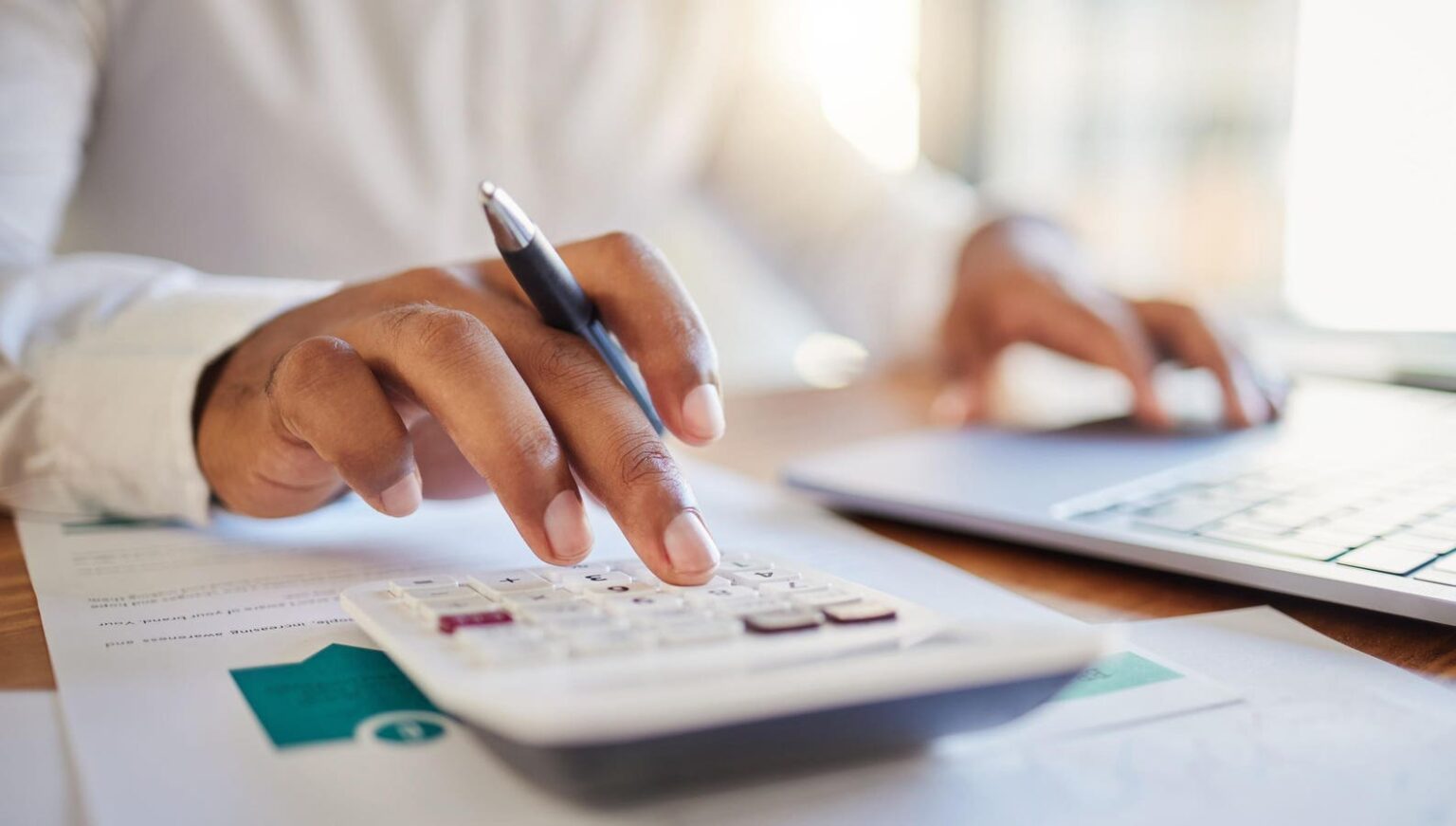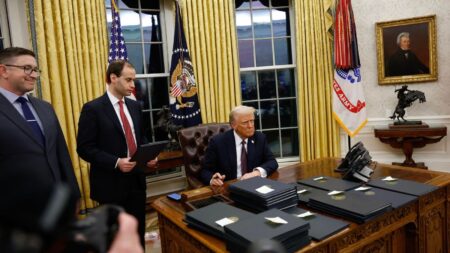The emergence and rapid rise of digital wallets, often referred to as e-wallets or mobile money, has been one of the world’s great infrastructure success stories of the past decade. Over the last 10 years, digital wallets have brought millions into the financial system for the first time, unlocking access to a host of financial services and opportunities in the process.
As of 2014, 2% of the global population aged 16 or over had some form of mobile money account, but by 2021 this had reached 10%, according to the World Bank’s Global Financial Inclusion dataset. This was more pronounced for those in low-income countries, where ownership jumped from 7% to 27% over the same period.
Such rapid adoption of digital wallets has been in part because they are developed with the local needs of their users in mind. This is both in terms of local infrastructure, such as telecommunication and smartphone availability, as well as what services local users will value, such as paying local vendors or sending money to friends and family.
But this localisation has also given rise to very broad variation in their design and while this was not an issue when they were initially only operating locally, over time the demands of digital wallets have become more international. Companies such as global infrastructure players TerraPay and Thunes, alongside the network arms of Visa and Mastercard, have increasingly been called upon to bring cross-border capabilities to digital wallets, and individual wallets have increasingly also been looking to partner with each other to enable cross-platform payments.
At present, each connection has to be built one-by-one, through carefully negotiated partnerships and platform-specific protocols, but several players are beginning to explore ways to tackle this issue on a broader scale. One of the most ambitious, however, is TerraPay, which is looking to change this with the development of the Wallet Interoperability Council.
First announced in August with founding members Airtel, bKash, M-PESA, Nequi and Sama Money, the council is intended to enable participating wallets to interconnect and interoperate for multiple cross-border transaction types, including remittances and merchant payments.
“We believe interconnectivity is a major pain point for M-PESA, for bKash and for other members,” explains Ruben Salazar Genovez, President of TerraPay.
Through the council, TerraPay intends to harness the connections it has already built with around 145 different wallets globally, allowing it to power cross-border payments for 2.4 billion individual digital wallets across the world, and in particular the messaging protocols it has developed with each of these, to enable cross-wallet and cross-border connectivity across a single platform.
“The ability to initiate the transactions directly from a wallet, and connect wallet-to-wallet, for cross-border P2P, is an unresolved issue around the world,” adds Salazar Genovez.
“If we can pioneer, with the support of the council members, in creating the minimum standards for that to happen, I think that will be a great contribution for all the wallets that today are operating in most cases like islands across the world.”
The rise of digital wallets: From domestic to cross-border
There are many digital wallet success stories globally, with Kenya’s M-PESA and Bangladesh’s bKash among the high-profile examples. The former, launched by Vodafone and Safaricom in 2007, was originally built around SMS messages and has grown to be a leader across much of Africa. Meanwhile the latter, a subsidiary of BRAC Bank, is interacted with via an app, having been developed partially in response to the success of M-PESA.
While some have been developed by local companies recognising an opportunity in the market, many have been explicitly created with financial inclusion in mind, often with the involvement of a government entity. bKash is one such organization, having originally been developed as part of a government initiative in 2011.
“People used to work in cities, they wanted to send money back home, and it had to be affordable, because the product is designed for the bottom of the pyramid customer; the core of everything was financial inclusion,” says Ali Ahmmed, Chief Commercial Officer, bKash.
This model of providing digital payments infrastructure within a market is a common focus. But as such services have grown, wallet operators have recognized opportunities beyond their immediate borders.
“We realized that we have to do something with the cross-border remittances, where a large diaspora lives outside the country and they do not have the right solution,” adds Ahmmed.
For others, this addition was driven by the needs of existing customers, which has necessitated expansion of the wallets’ capabilities.
“[M-PESA] started off as very much a domestic payments solution,” explains Esther Waititu, Chief Financial Services Officer, Safaricom, adding that the company added cross-border services in response to customer requests.
“The demand has been driven largely by our customers: ‘If I’m able to send money from the city to my rural area, then can I send money from the US home? Can I send money from Malaysia back home?’”
The role of partnerships in digital wallets
Over time, this demand has seen wallets develop broader solutions, aided by partnerships with infrastructure players.
M-PESA, which today has more than 60 million active customers across Africa alone, sending more than $1bn in transactions each day, has now “evolved into different pathways”, says Waititu, with capabilities across domestic and cross-border P2P and merchant payments as well as wider financial services and business solutions. Partnerships have been key to this, with TerraPay already supporting M-PESA in delivering inbound payments from Asia and the Middle East.
This partnership in particular has helped both parties grow. Having been founded on the principle of creating interoperation between wallets in 2015, TerraPay expanded into bank account and card connections later, but was able to improve its geographic reach as a result of the M-PESA partnership.
“It changed TerraPay,” explains Ani Sane, Co-Founder and Chief Business Officer, TerraPay. “Everybody knows M-PESA, and everybody knows Safaricom: it helped us make this network grow from Asia into Latin America.”
bKash, meanwhile, has grown its customer base to 70 million and has developed a “partnership ecology”, according to Ahmmed, that has enabled it to offer a broad range of services. While TerraPay handles its remittance offering, other partners include telecoms players and utility providers who enable it to offer services such as mobile recharge reselling and bill payments.
“We quickly learned that we as bKash do not have all the right resources in the world to build the best-in-class technology, so we collaborated,” explains Ahmmed, adding that the company’s partnership with TerraPay sees it harness the company’s end-to-end platform to connect with 140 online money transfer companies and 24 local banks.
However, TerraPay first began speaking to bKash when the former was in its infancy and the company was beginning to explore how it could “ensure wallets come to the forefront for financial inclusion”, according to Sane.
“How wallets are able to make life – not just for consumers and merchants – more seamless, and that’s pretty much what the story for wallets has been,” he adds. “And now if I look back 10 years later, what we have is an immense infrastructure.”
The integration with TerraPay has enabled bKash to become Bangladesh’s second-largest remittance processor, working with banks to handle FX transactions for inbound remittances in lieu of its own banking license, and sees it “constantly work with other players”, says Ahmmed, giving CaptiveSend, Remitly and WorldRemit as examples, to optimize the experience for customers.
However, each partnership requires its own effort and solutions, creating a need for more streamlined ways to interoperate.
Digital wallets’ interoperability challenge
Interoperability is a long-standing challenge for the world’s payment ecosystems, particularly those that have emerged over the last 60 years, as new generations of technology have provided increasingly sophisticated solutions to local payments needs and pain points.
“Interoperability has been an issue not only for banks, especially in cross-border, but for traditional payment methods like cards and other capabilities,” explains Salazar Genovez, adding that digital wallets are one of the latest to begin to tackle this challenge.
“The interoperability in wallets is nascent, because most of these beautiful infrastructures were born mainly as domestic solutions.”
As wallets have improved financial inclusion, they have also helped unlock greater access to the world, particularly alongside wider digitisation. And what follows is a need for greater global trade, which creates its own interoperability demands.
“It means that we need to start thinking about how wallets can interact, especially those that were built purely for domestic use,” says Waititu, adding that in many areas M-PESA covers, particularly East Africa, trade has a significant cross-border component.
“A lot of trade happens between the borders, and not only is it happening from a P2P side, but it’s also happening between B2C, where the convenience now becomes really big.”
But the issue is not simply a matter of domestic and cross-border. Any siloed financial system needs to be able to communicate with other systems in order to interoperate, and for digital wallets this will require standardized communication protocols that can both support consumers domestically across different payment applications and connect internationally.
“In order to achieve that, the whole wallet ecosystem will need to collaborate and to understand a common standard, a common platform, to interchange this kind of messaging,” says Salazar Genovez, adding that the current individual partnership-based approach also creates inefficiencies.
“In order for the wallets to become international, the only way today is to start signing bilateral agreements with multiple wallets,” he explains. “But that becomes really inefficient, because then you will need to have as many settlement files, as many FX arrangements, as many operating rules as the bilateral agreements you have. So that’s a very inefficient way to expand the utility, and provide the best user experience for clients.”
TerraPay’s Wallet Interoperability Council
For TerraPay, the Wallet Interoperability Council is a way to tackle the interoperability issues at the heart of the next phase of digital wallets’ growth in a manner that Salazar Genovez says has not yet been achieved.
“There is no network today for wallets to interoperate, that’s the reality,” he says.
“There are many sub-networks and many bilateral and dual connectivities. But there is not a place for all the wallets to come into a single place, into a single platform, to manage this transaction in a common understanding, and be able to settle and to manage FX in a more efficient way.”
This approach is central to TerraPay’s view of the next decade, but it is not a matter of the company developing a platform alone. The council is instead intended to be highly collaborative, with digital wallet players from around the world contributing to its development.
“TerraPay has been building the capabilities and the functionalities over the past 10 years, but we still require the contribution and the collaboration of leading wallets to help us shape this new ecosystem going forward,” explains Salazar Genovez. “We don’t believe we’re going to be able to do it without the participation and the debate, and the contribution of all the wallets who understand better how their ecosystems are operating in the local environments.”
The company also does not plan to be prescriptive in how wallets operate, but instead look to create orchestration solutions that can enable them to more effectively interact, as well as handling the cross-border side of the process.
“Transaction processing is key for us as part of the council,” explains Sane. “The council will also ensure the settlement of monies from the sender to the receiver, [such as] from micro-SMEs to consumers. That kind of settlement is key and that has to be done cross-border, and you have to do foreign exchange in the most efficient way as well.”
The goal is therefore to enable merchants and consumers using participating wallets to work “in exactly the same environment” for domestic and cross-border transactions, he adds.
For individual wallets, the council also provides a collaborative environment, creating an opportunity to find new approaches to growth. Waititu says that joining allows her “to explore those key areas that we need to develop as an industry” while maintaining M-PESA’s competitive position and continuing innovation.
“We have the same issues that face us, and that is a reason why we are so excited and thrilled to be part of this: so that we can actually scale and give our merchants and our consumers greater options,” she says.
For bKash, meanwhile, joining the council was an easy choice not only because of the pre-existing trust with TerraPay, but also “the sheer coverage”, according to Ahmmed.
“What we believe is the wallet-to-wallet money transfer is the future. So it was rather easy for us to join the network.”
Building beyond financial inclusion
Financial inclusion has been critical to digital wallets’ development up to this point. In 2007, when M-PESA was first founded in Kenya, the share of the country’s population with access to a financial account stood at around 23%, according to Waititu. Today, that share is above 80%.
This has been achieved through considerable active effort, with the mobile money space playing a vital central role. As part of this, Safaricom has helped ensure M-PESA has a direct integration with all banks in the country and Waititu sees these efforts as key to this sharp upswing in financial access. Ahmmed also reports similar efforts at bKash.
“The idea is how do we bring financial inclusion into the country, and how do we offer the best-in-class service for the citizens of Bangladesh?” he says.
For TerraPay, the council provides the opportunity to continue to drive these efforts further.
“If we do this right, and I am convinced we are going to do it right, there is an immense benefit for the communities that we’re trying to serve,” says Salazar Genovez.
“By our internal calculation, out of the 2.5 billion wallets that we are serving, we believe that there are around 600 million individuals who are participating in these wallets that don’t have another financial tool in their hands. So we believe this is an important problem to address, and we believe it is critical for us to participate, to collaborate and to build these strong partnerships to solve for this.”
However, Waititu is keen to stress that “financial inclusion is not the endgame”.
“Once people are in the financial system and they are included, the real issue then is how do we help them to preserve and use their wealth? That’s really where our next chapter is coming from,” she explains, pointing to areas such as savings, investment and insurance, where current penetration remains particularly low.
“Our big goal there is around how do we enable distribution of these different financial solutions to those who are underserved? Because if it was easy to serve them, I’m sure our penetration would’ve been much, much higher.”
Here the council, and cross-border payments more broadly, is key because it plays a vital role in enabling this next level of financial services access.
“Right now we’re doing the payments piece, but a payment is at the end of a specific action. It could be an investment action that’s bringing money back home, it could be an insurance action,” she explains.
“This is why being part of the council is so important to us, which is then how do we scale this, not just at a domestic level, but how do we scale this across borders? And because we’ve become such a globally connected society, there’s no way you can do it domestically and hope that you’re going to succeed.”
For bKash, meanwhile, Ahmmed says there is “a responsibility to bring equality into the ecology”.
“Our long-term goal is very simple: get this industry know-how from different markets, build a solution that is highly scalable and bring cost down for both sender and receiver.”
Maintaining privacy and security
While customer experience is key, so too is privacy, security and compliance, with Sane stressing this will be key to the council’s impact.
“Security and standardization is a key part of how this council would really come to the forefront,” he says.
This is a critical foundational element for Ahmmed, who adds that compliance is something the company “cannot ignore”.
“Setting up a high standard of compliance, knowing all global compliance requirements that have to be properly followed,” he says. “If the council can do that, there’s no reason why we cannot collaborate.”
For Waititu, maintaining security is also critical to maintaining and growing customer trust.
“Banks have earned the ability to be trustworthy with funds over 100 years, but for mobile digital wallets, yes we’re trusted, but we still need to take it to the next level,” she explains.
“So what do we think about the security protocols? How do we take our security to the next level? That then allows us to remain globally competitive, and meet with the new trends that happen from a technology point of view.”
Beyond this, she also sees one of the key opportunities of the council as being the ability to share knowledge and discuss solutions to the ever-evolving challenges around consumer protection and data privacy, which she says is “a very, very big thing” for her at present.
“How do I minimize the data? How do I make sure it’s protected? I’m working in this ecosystem, how am I making sure that as we evolve and move through this ecosystem, that we’re actually getting protected?”
Towards a globally interconnected digital wallet ecosystem
While interoperability is the core focus of the Wallet Interoperability Council, the power that comes from working as a broader unit cannot also be overlooked. Together, the founding council members cover more than a billion individual wallets, and therefore have the potential to apply industry-moving standards to the wider ecosystem.
“There’s power in that, because then you’re able to set the relevant standards across the wallets globally, and this will match and rival what, for example, cards have been able to do over a long period of time,” says Waititu.
Then there is the potential for knowledge sharing, collaboration and development. Council members have the ability not only to learn from each other, but to also work to drive the industry forward in a manner that is much harder to achieve from individual bilateral agreements alone.
“It really allows us as a body of industry experts when we come together to think holistically about these key issues that face our industry, that allow us to do things differently,” adds Waititu.
“That spirit of the partnership of collaboration is one of the key successes that we’ve had here, but also a key success of how we’re being able to participate in this council. And then what else can we take to the world?”
For Sane, this is therefore an opportunity to not only bring together the significant “innovation happening across the globe” but to “also make it cohesive to interoperate and share that innovation”.
This is not something that will happen overnight, however. TerraPay sees this as central to the company’s next decade, and will be looking to add members to the council as it grows and formally launches. However, the opportunity for change is significant.
“In the next 10 years we’re going to have six, seven billion wallets out there, and they cannot continue to operate in an isolated manner,” says Salazar Genovez.
“We need to bring as many wallets as we can into the network, but the council is helping us to set the basis, and build the conditions to bring as many wallets as we can.”
Read the full article here











